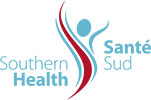Nutritional Newsletters
Frequently Asked Questions on the School Nutrition Newsletter
What is the reason/purpose for having a school nutrition newsletter?
To provide current, science based nutrition information to inform and educate families. Nutrition information is accessible anywhere, but we use information that is based on evidence.
Who is the intended audience for the school nutrition newsletter?
It is intended for families with children in the school system from kindergarten to grade 12. However, many of the ideas can be used with children younger than kindergarten age.
How can the school nutrition newsletter benefit me and my family?
We give practical tips that can be used by parents when feeding their families. We help families navigate hot topics that are in the news and social media. We provide ideas on how to plan meals along with a tasty recipe each month.
How do I access the school nutrition newsletter in my area?
It is accessible on the Southern Health-Santé Sud website. Many schools put it on their own websites or attach to their newsletters.
How reliable is the information on the newsletter?
The information is based on current scientific evidence and is written by the Registered Dietitians who work in Southern Health-Santé Sud.
Who do I contact if I have questions or feedback regarding the school nutrition newsletter?
If you have concerns or questions, please call the Nutrition Services Team at 204-428-2736. Also, please keep an eye out for and complete the annual survey that is sent out in the spring.
How often is the newsletter published?
The newsletter is published four times through the school year from September to June.
Is the newsletter available in French?
Yes, simply click on the 'Français' icon at the top right corner of your screen.
How are the topics for the newsletters decided on?
We select topics based on suggestions from our survey filled by parents, teachers or administration. Some of the topics are standard. For example, there is always one on allergies and one on the nutrition month theme. Regional dietitians also provide ideas for topics.

